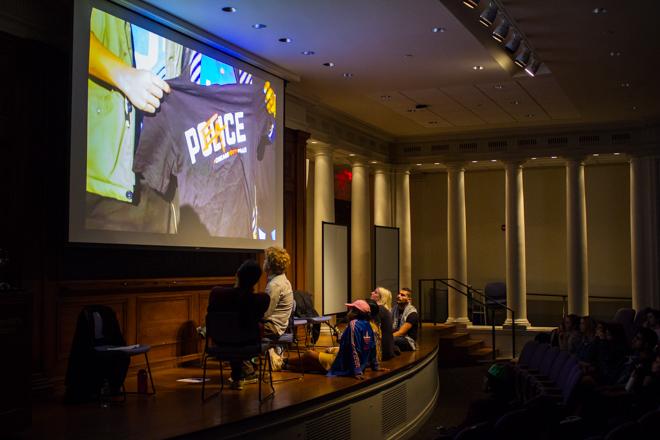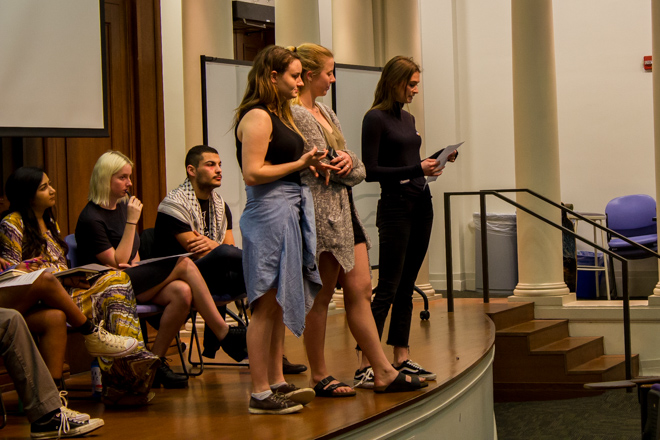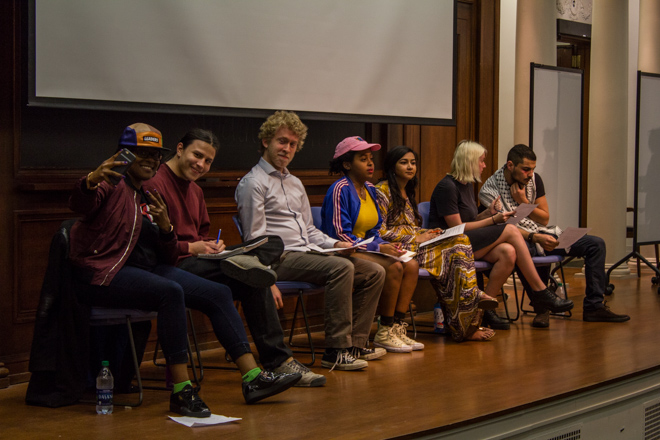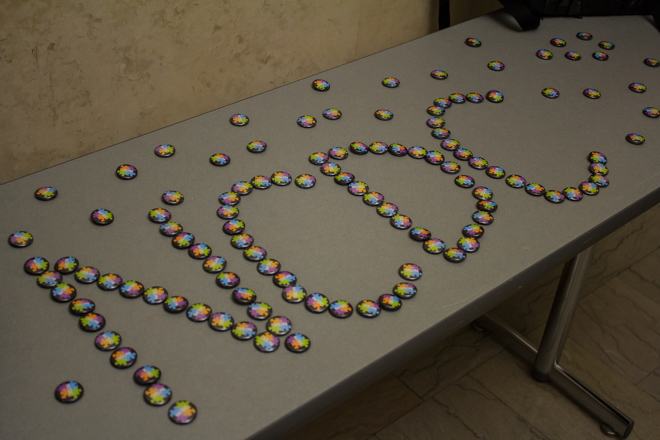Photos by Virginia Nowakowski / North by Northwestern
On the Harris stage sat six students, all representing different activist groups, all representing different passions and battles against oppression.
“We are certainly going to have some robust conversation,” Jessica Disa, who also goes by her performance name FM Supreme, laughed before the discussion began.
Disa, a rapper, poet and activist from Chicago was the moderator of the Panel on Student Activism hosted by the Northwestern Community Development Corps (NCDC) in Harris Hall on Wednesday night.
The students started off by explaining how and why they got into activism.
“I'm fighting for my own liberation,” Labelle Darcelle, a junior doing work for Black Queer/Trans Rights, said. “I'm not just going to let the oppressions of the world rage around me.”
Although students represented a variety of organizations ranging from the The People's Lobby to Real Food at NU, they all stressed the intersectionality of their causes. However, as much as the students emphasized their unity amongst one another, they also emphasized their struggles with the administration.
Marcel Hanna, the president of Students for Justice in Palestine (SJP), talked about when two organizations he is a part of, Northwestern Divest and Unshackle NU, pushed to created a committee on socially responsible investment to advise the University on divesting from irresponsible corporations.
“We submitted that proposal 2 years ago,” Hanna said of the committee, which was officially put into place last year. “The only time the University decided to take initiative is when we started piling on the pressure.”
Forrest Bruce, a member of the Native American and Indigenous Student Alliance (NAISA), shared a similar story. Bruce has worked to raise awareness about John Evans, a founder of Northwestern, and Evans’ fundamental role in the Sand Creek Massacre.
Evans was the second governor of Colorado in 1864 when the Massacre occurred. He issued a proclamation ordering citizens to go “in pursuit of all hostile Indians [and] kill and destroy all enemies of the country.” In November of 1864, Colonel John Chivington, appointed by Evans, went on to kill over 100 Native Americans.
“They don't want that – their founder committing a massacre,” Bruce said. “No one [from the University] would talk to us until the Chicago Tribune put a story on us.”
As well as frustrations with the administration, the students discussed their discontent with the media.
“As a journalism student, I came in wanting to chase objectivity. This idea of objectivity is not attainable,” Medha Imam, an organizer of NU's No Muslim Ban walkout, said. “You should be giving more space and time to voices that are underrepresented.”
Darcelle agreed, adding that sensitivity is often necessary for coverage of their causes. “Nothing is objective so you need to imbue the work you do with empathy,” she said.
They also discussed how to continue their legacy at the school after graduation. Darcelle talked about creating an archive, even just vocally telling stories, to keep the organization’s efforts alive. Imam discussed empowering the next generation.
“Invest in your younger friends,” Imam said. “Tell them you believe in them and mean it.”
Towards the end of the panel, Disa summarized the discussion with a quote from Martin Luther King Junior.
“Our lives begin to end when we become silent about things that matter,” Disa said.



